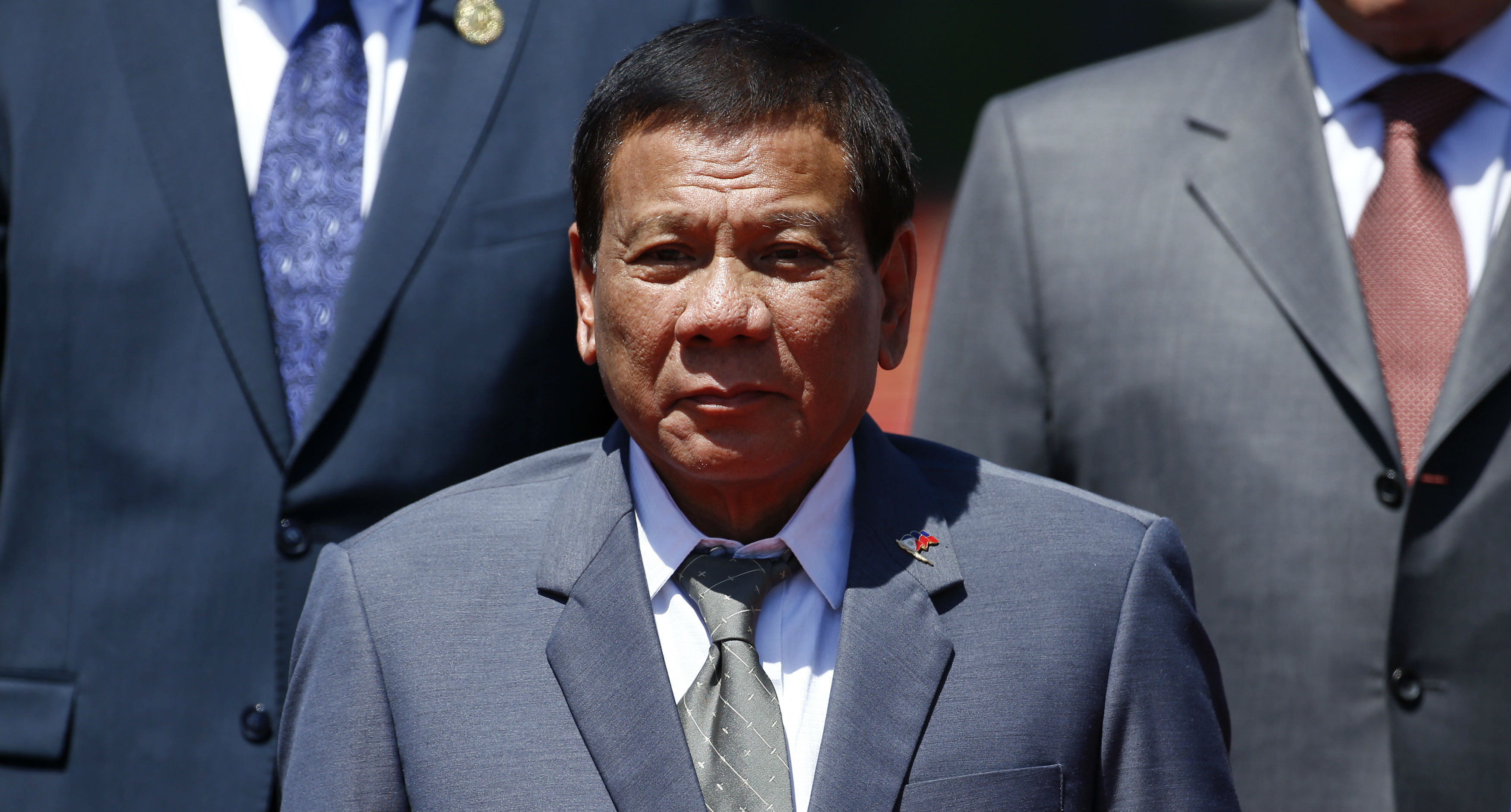Philippines’ Rodrigo Duterte calls for ICC mass exodus
‘Trump of the East’ has withdrawn from court after it launched an inquiry into extrajudicial killings

A free daily email with the biggest news stories of the day – and the best features from TheWeek.com
You are now subscribed
Your newsletter sign-up was successful
The President of the Philippines, Rodrigo Duterte, has called for other countries to follow his lead and stage a mass withdrawal from the International Criminal Court.
Last week, Duterte announced the Philippines would be withdrawing from the ICC, the world’s only permanent war crimes court, following what he called “outrageous” comments by UN officials and violation of due process. The Philippines is only the second country to leave the court, after Burundi announced it was departing last year.
It comes after the ICC launched an inquiry into allegations of crimes against humanity committed by Duterte as part of his brutal anti-drugs campaign.
The Week
Escape your echo chamber. Get the facts behind the news, plus analysis from multiple perspectives.

Sign up for The Week's Free Newsletters
From our morning news briefing to a weekly Good News Newsletter, get the best of The Week delivered directly to your inbox.
From our morning news briefing to a weekly Good News Newsletter, get the best of The Week delivered directly to your inbox.
According to official figures, more than 4,000 people have been killed by the police in anti-drugs operations since Duterte came to power 18 months ago, although many believe the real figure could be double that.
Duterte’s government said the decision to withdraw was a “principled stand against those who politicise and weaponise human rights”. The decision triggered “warnings from a top tribunal official that it would harm global efforts to end impunity for the world's worst crimes”, reports the New Straits Times.
Since securing a landslide victory in 2016 on a pledge to kill tens of thousands of criminals and eradicate drugs from Philippine society, Duterte has earned the nickname the Trump of the East for his outspoken and at times confrontational approach.
He has authorised police to crack down on illegal drug use, urging them to kill suspects and promising to protect them from prosecution. Duterte also endorsed vigilante gangs and claimed to be personally responsible for extrajudicial killings. He has been accused of triggering mass murder.
A free daily email with the biggest news stories of the day – and the best features from TheWeek.com
Despite widespread international condemnation, Duterte’s “abrasive tongue and brutal methods have kept him popular in the Philippines, where he enjoys high approval ratings and legislative support”, says The Guardian.
The Philippines only ratified the Rome Statute, the founding treaty of the ICC, in 2011. Since taking power, Duterte has called it “bullshit”, “hypocritical” and “useless”, and has threatened to withdraw his country multiple times, even daring the court to bring him to trial.
However, lawyers told Reuters “the withdrawal does not insulate Duterte from a possible indictment, as the ICC’s jurisdiction retroactively covers the period during which a country was a member of the court”.
-
 Why are election experts taking Trump’s midterm threats seriously?
Why are election experts taking Trump’s midterm threats seriously?IN THE SPOTLIGHT As the president muses about polling place deployments and a centralized electoral system aimed at one-party control, lawmakers are taking this administration at its word
-
 ‘Restaurateurs have become millionaires’
‘Restaurateurs have become millionaires’Instant Opinion Opinion, comment and editorials of the day
-
 Earth is rapidly approaching a ‘hothouse’ trajectory of warming
Earth is rapidly approaching a ‘hothouse’ trajectory of warmingThe explainer It may become impossible to fix
-
 Epstein files topple law CEO, roil UK government
Epstein files topple law CEO, roil UK governmentSpeed Read Peter Mandelson, Britain’s former ambassador to the US, is caught up in the scandal
-
 Iran and US prepare to meet after skirmishes
Iran and US prepare to meet after skirmishesSpeed Read The incident comes amid heightened tensions in the Middle East
-
 Israel retrieves final hostage’s body from Gaza
Israel retrieves final hostage’s body from GazaSpeed Read The 24-year-old police officer was killed during the initial Hamas attack
-
 China’s Xi targets top general in growing purge
China’s Xi targets top general in growing purgeSpeed Read Zhang Youxia is being investigated over ‘grave violations’ of the law
-
 Panama and Canada are negotiating over a crucial copper mine
Panama and Canada are negotiating over a crucial copper mineIn the Spotlight Panama is set to make a final decision on the mine this summer
-
 Why Greenland’s natural resources are nearly impossible to mine
Why Greenland’s natural resources are nearly impossible to mineThe Explainer The country’s natural landscape makes the task extremely difficult
-
 Iran cuts internet as protests escalate
Iran cuts internet as protests escalateSpeed Reada Government buildings across the country have been set on fire
-
 US nabs ‘shadow’ tanker claimed by Russia
US nabs ‘shadow’ tanker claimed by RussiaSpeed Read The ship was one of two vessels seized by the US military